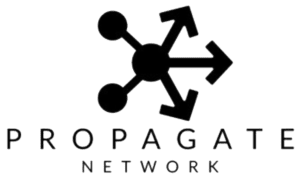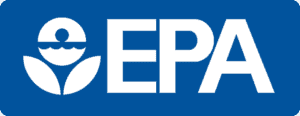HESI Launches International PROPAGATE Network to Enhance
COVID-19 Testing Efficiency in Low-Resource Settings

In June 2020, HESI launched a novel collaboration with clinical and research colleagues in Malawi, Nigeria, Brazil, Chile, France, United States, and Trinidad to advance more efficient and accessible SARS-CoV-2 testing methods. The PROPAGATE Network, a voluntary global network of lab scientists in these countries, will assess the reproducibility and utility of an extraction-less PCR testing method developed by participating scientists at the University of Washington and University of Vermont. This method has the potential to be used as a screening test that requires fewer experimental resources, lower costs, and less time than traditional PCR analysis. Early assessments suggest that the method may retain sufficient sensitivity to be used to detect clinical positive samples from patients that are most likely to be infectious. All labs in the PROPAGATE Network will use the same experimental method, reagents, and a common set of clinical samples as collected and pooled by the University of Washington. All partner labs are volunteering their time and equipment to analyze the samples. HESI is providing scientific guidance and management to the program, as well as some financial resources to support the distribution of the sample kits. Special thanks to the faculty and staff at the University of Washington for providing access to clinical samples and supporting sample preparation and distribution. Initial study results are anticipated in August and a collective manuscript will be prepared for peer-review in that time frame.
The PROPAGATE Network is an active follow-up to HESI’s recent call to action “All In: A Pragmatic Proposal for COVID-19 Testing and Action on a Global Scale” in EMBO Molecular Medicine. If you would like to learn more about or support the PROPAGATE Network, please contact Connie Mitchell (cmitchell@hesiglobal.org).
HESI is committed to supporting global progress to tackle COVID-19. If you have other ideas as to how HESI can or should support science around COVID-19, please contact hesi@hesiglobal.org with the subject header “COVID-19 Support”.
HESI Programs Presented at U.S. EPA Science Advisory Board Meeting

Two HESI programs were part of a 24 June 2020 public meeting of the U.S. EPA’s Chartered Science Advisory Board and the Science Advisory Board Chemical Assessment Advisory Committee on “New Approach Methods and Reducing the Use of Laboratory Animals for Chronic and Carcinogenicity Testing.” Dr. Jessica LaRocca (Corteva) presented on the activities and progress within the HESI eSTAR Committee’s Molecular Point of Departure (POD) Working Group. The group’s objective is to develop a framework to derive an in vivo transcriptome POD for use in chemical risk assessment that will produce a human health-protective POD without needing to link the transcriptomic change with a specific adverse effect, mechanism, or mode of action. The eSTAR Molecular POD Working Group is currently working on a state of the science manuscript to further expand on the group’s objective statement. For additional information on the eSTAR Committee, contact Carolina Morell-Perez (cmperez@hesiglobal.org).
The HESI PBPK Committee’s initiative on Kinetically-Derived Maximum Doses (KMD) was highlighted in a presentation by Dr. Cecilia Tan (U.S. EPA). This project is aimed at developing best practices in guidance on KMD analysis, discussing if and how KMD can be applied in the context of risk assessment, and identifying situations where the use of KMD might be limited or prohibited. The project will hold a virtual workshop, co-sponsored by NICETAM, U.S. EPA, and HESI, in October 2020. For additional information on the PBPK Committee, contact Michelle Embry (membry@hesiglobal.org).
Botanical Safety Consortium Technical Working Groups

HESI’s Botanical Safety Consortium (BSC) is forming a Cardiotoxicity Technical Working Group and a Neurotoxicity Technical Working Group. The consortium is working to integrate existing botanical safety and toxicity information with the latest toxicological tools. We plan to use in vitro and in silico tools to test botanical ingredients and compare them to existing safety data. Each group will meet monthly via teleconference.
The early goals of each group are to:
- Bring in scientific and technical experts
- Define the mission and objectives of the group
- Select botanical ingredients based on existing safety data
- Select suitable in vitro and in silico techniques to evaluate toxicity with respect to cardiotoxicity and neurotoxicity
If you or anyone in your network is interested in joining the BSC, please fill out this form. If you would like to be on either of the technical working groups, please indicate that you wish to be considered for the Stakeholder Council or a Technical Working Group, then select “Technical Working Group,” and select either “Cardiotoxicity” or “Neurotoxicity” and submit your CV.
The Consortium was also highlighted in the recent issue of the NIEHS Environmental Factor for aiming to fill the gap in botanical safety testing. Read the full article here.
Welcome to New HESI Leadership
In June, HESI welcomed five new members to the Board of Trustees: Karissa Adkins (Sanofi), Eliana Munarriz (University of Buenos Aires), Kathleen Shelton (FMC Corporation), Watze de Wolf (European Chemicals Agency), and Carole Yauk (Health Canada). HESI also thanked Lois Lehman-McKeeman, HESI Chair, and Charlene McQueen, HESI President, for their leadership and service over the past two years while welcoming Martin van den Berg (Utrecht University) as the new HESI Chair and Jon Cook (Pfizer) as the new HESI President.
Additionally, HESI is excited to welcome Angelo Moretto (University of Milan) as the new HESI Editor-in-Chief managing the peer-review process, and we sincerely thank Sam Cohen (University of Nebraska Medical Center) for his service as Editor-in-Chief over the past three years.
To view a full list of the HESI Board of Trustees, click here.
From the Leadership

For the July edition of Insights, I wanted to focus on giving thanks in the face of the challenges brought about by COVID-19. For me personally, we spent several months with our adult children who took refuge from New York City and Paris to be with us, which was a gift. Instead of meeting face-to-face for our June HESI Annual Meeting in Amsterdam, we held a three-day virtual meeting that was executed flawlessly thanks to the HESI staff. On day 1, we held our Board of Trustees meeting and welcomed five new Board members: Karissa Adkins (Sanofi), Eliana Munarriz (University of Buenos Aires), Kathleen Shelton (FMC Corporation), Watze de Wolf (European Chemicals Agency), and Carole Yauk (Health Canada). On day 2, seminars on artificial intelligence and machine learning outlined a new future for advancing science, while the last day focused on emerging scientific issues. We ended the meeting by thanking Lois Lehman-McKeeman (HESI Chair) and Charlene McQueen (HESI President) for their leadership over the past two years.
We continue to move forward as an organization dedicated to public health. We will begin execution on two Board strategic initiatives (academic and global outreach) and will begin the journey to refresh our strategic plan. While there are many challenges yet to be faced as a result of this pandemic, there are over 15 vaccines in development and 597 planned or ongoing clinical trials evaluating treatments to manage COVID-19 symptoms. I firmly believe science will win, and thank you all for your contributions to advancing HESI’s mission during this challenging time.

Jon C. Cook, PhD, ABT, DABT
HESI President
